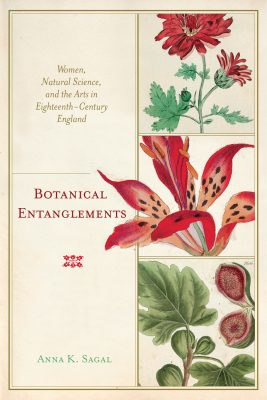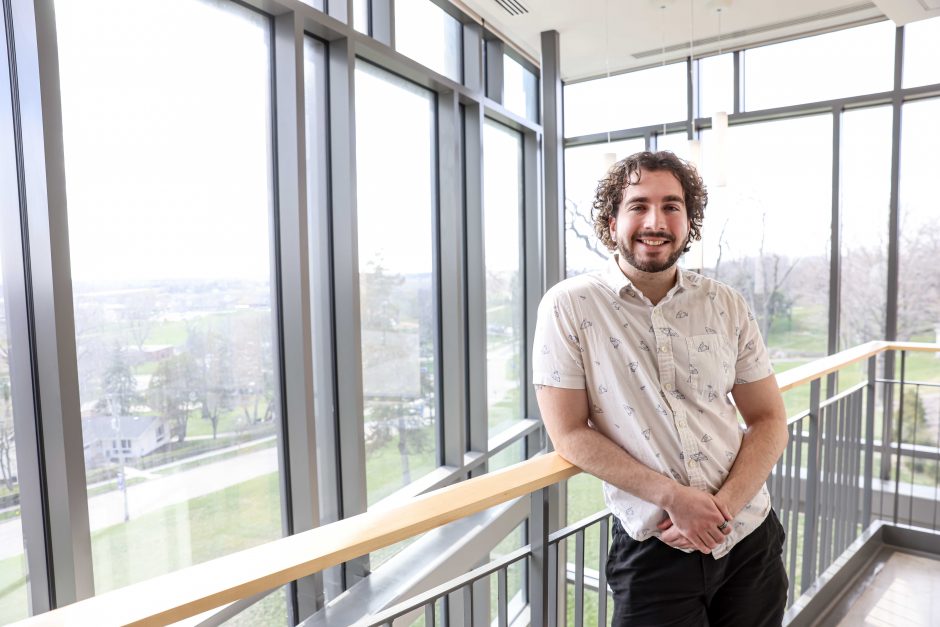Sagal publishes 1st book ‘Botanical Entanglements’
Assistant Professor of English Katie Sagal explores women’s art and writing in the pages of her newly published book, “Botanical Entanglements: Women, Natural Science, and the Arts in Eighteenth-Century England.”

After more than a decade of writing and research, the book tackles a hidden truth–that women have contributed to scientific study for generations, but their discoveries are found in unexpected places.
“The book studies how women actively contributed to botanical research, discovery, and education in spite of being explicitly barred from professional scientific work by sexist conventions of the time period,” Sagal said. “Since they weren’t allowed to attend university or publish scientific papers, they shared scientific knowledge through conventionally feminine-appropriate genres like novels, poetry, children’s textbooks, and visual art.”
Sagal said it was important to her that the book would be read by more than just English professors, so she spent a lot of time thinking about how to make it engaging and informative to people of any background. Throughout the book, readers will see how women were much more active in the history of science than many have thought and she argues that we could learn a lot from the women of 18th century England about how we should treat the planet.
 “The different ways these women writers and artists made their mark on scientific study can show modern audiences a unique approach to encountering the natural world that doesn’t replicate the long-standing tradition of exploitation and dominion that has brought the planet to such dire environmental straits,” Sagal said.
“The different ways these women writers and artists made their mark on scientific study can show modern audiences a unique approach to encountering the natural world that doesn’t replicate the long-standing tradition of exploitation and dominion that has brought the planet to such dire environmental straits,” Sagal said.
For example, one part of the book explores how people think about plants and how they’re typically considered inferior to humans and only matter with respect to their utility in human society. But, she explores what would happen if people considered plants and the natural world more holistically.
“The women in the book, in particular, seemed to respect plants as more than inert objects, unlike many of their contemporaries, so I ask my readers to think about what the world could be like if plants–and the natural world as a whole–are important like humans. I think this has big implications for the environmental movement.”
Sagal plans to continue researching this topic and will engage students in her studies in the coming years. Plus, the research supports her lessons during her eighteenth-century literature classes.
“Part of my new book, for example, focuses on how recipe books in the eighteenth century–which included both culinary and medicinal concoctions–are a valuable record of women’s scientific work because they document their experiments with different plants in search of, say, a cure for the fever or cramps. I have since included a focus on recipe books in Queering the Restoration as part of a feminist legacy of knowledge collection.”
She hopes those who pick up her book are excited to learn about the hidden truths she is revealing throughout the pages and how women’s contributions have been preserved in a different way.
The University of Virginia Press published Sagal’s new book in July of 2022.
Sagal has been teaching at Cornell College since 2018 and has a Ph.D. in English from Tufts University. She teaches courses at Cornell College such as Social Media & Social Justice, Science Fiction & Science Fact, Gothic Monsters, Grammar & The Politics of English, and Video Games as Literature.



